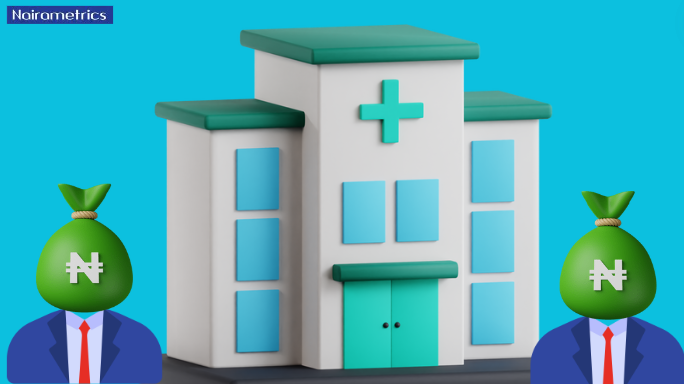Top 10 African Cities with the Best Healthcare Systems in 2025
New York, NY – August 22, 2025 – As Africa continues to make strides in improving healthcare access and quality, certain cities stand out for their robust medical infrastructure, skilled professionals, and innovative health programs. Based on the latest available data, particularly from Numbeo’s Healthcare Index and Business Insider Africa, here are the top 10 African cities with the best healthcare systems in 2025. These rankings reflect factors such as healthcare professionals, equipment, staff, costs, and overall infrastructure, offering a glimpse into where quality care thrives on the continent.
1. Cape Town, South Africa
Cape Town leads Africa with a Numbeo Healthcare Index score of 70.8, the highest on the continent. Home to world-class facilities like Groote Schuur Hospital—famous for the first human heart transplant in 1967—the city blends advanced public and private healthcare. Its medical research institutions drive cutting-edge treatments in oncology, cardiology, and orthopedics, while strong public health programs address HIV/AIDS, tuberculosis, and maternal health. Cape Town’s infrastructure and access to specialists make it a medical tourism hub.
2. Pretoria, South Africa
Pretoria ranks second with a Healthcare Index score of 68.3. A hub for medical education, the University of Pretoria trains top healthcare professionals, and the city is involved in health innovation projects to improve patient outcomes. Facilities like Steve Biko Academic Hospital offer specialized care, and Pretoria’s proximity to Johannesburg enhances its access to advanced medical resources. Its focus on training and technology ensures high-quality service delivery.
3. Nairobi, Kenya
Nairobi, with a Healthcare Index score of 61.5, is East Africa’s healthcare powerhouse. Internationally accredited hospitals like Aga Khan University Hospital and Nairobi Hospital attract medical tourists from the region. Robust public-private partnerships enhance access to advanced technologies, and the city’s focus on universal health coverage (UHC) initiatives strengthens service delivery. Nairobi’s role as a regional hub ensures diverse medical offerings.
4. Johannesburg, South Africa
Johannesburg, scoring 60.9 on the Healthcare Index, is a leader in medical research, with institutions like the University of the Witwatersrand driving innovation. The city’s top-tier private hospitals, such as Netcare Milpark, provide specialized care in cardiology and neurology. Efforts to improve accessibility and integrate health technologies make Johannesburg a key player in African healthcare.
5. Durban, South Africa
Durban, with a Healthcare Index score of 59.2, is a vital healthcare hub, offering quality services in cardiology and nephrology. Facilities like Inkosi Albert Luthuli Central Hospital are well-equipped, and community-based health programs target infectious and non-communicable diseases. Durban’s proactive public health campaigns enhance its healthcare reputation.
6. Tunis, Tunisia
Tunis benefits from Tunisia’s strong healthcare system, with a national Healthcare Index score of 57.41. The city’s Charles Nicolle Hospital is a leader in complex care, supported by 2.3 hospital beds per 1,000 people. Universal health coverage ensures over 90% of residents have access to affordable care, though rural specialist shortages persist. Tunis’s focus on maternal and child health boosts its ranking.
7. Algiers, Algeria
Algiers, tied to Algeria’s Healthcare Index score of 54.42, offers free healthcare to all citizens through government-funded facilities like Mustapha Pacha University Hospital. With 1.9 beds per 1,000 people, the city handles complex cases but faces challenges with wait times. Investments in primary care and infrastructure make Algiers a strong contender.
8. Gaborone, Botswana
Gaborone’s healthcare system, supported by Botswana’s over 90% coverage rate, features facilities like Princess Marina Hospital. While specific 2025 city scores are unavailable, Botswana’s national Healthcare Index and investment in HIV/AIDS programs place Gaborone high. With 2.2 beds per 1,000 people, the city excels in preventive care, though rural facilities need upgrades.
9. Kigali, Rwanda
Kigali stands out for Rwanda’s universal health coverage, reaching over 90% of citizens. King Faisal Hospital is a regional leader, and the community-based Mutuelles de Santé program keeps costs low. With 0.9 beds per 1,000 people, Kigali’s focus on primary care and digital health innovations elevates its status, despite specialist shortages.
10. Cairo, Egypt
Cairo rounds out the list, leveraging Egypt’s developed healthcare system with high-quality hospitals in the capital, such as Dar Al Fouad. The city benefits from a large pool of skilled doctors and growing investments in universal health coverage, making it a medical tourism destination. Specific city scores are unavailable, but Egypt’s national system supports Cairo’s ranking.
Broader Context and Trends
South Africa dominates the list, with four cities in the top five, reflecting its advanced private healthcare sector and research capabilities. However, challenges like rural access and specialist shortages persist across the continent. North African cities like Tunis, Algiers, and Cairo benefit from universal coverage, while East African hubs like Nairobi and Kigali excel through innovation and partnerships. Emerging technologies, such as telemedicine and AI, are enhancing care delivery, with startups in these cities attracting significant investment.
For Americans interested in African healthcare systems—whether for medical tourism, investment, or relocation—these cities offer reliable options. However, thorough research and travel insurance are advised, as infrastructure varies. As Africa’s healthcare landscape evolves, these cities are leading the charge toward accessible, high-quality care.
